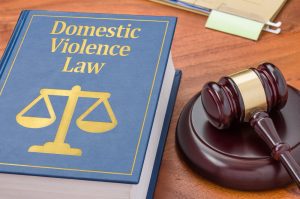Posted on Thursday, June 29th, 2023 at 7:52 pm
If you or a loved one suffers from domestic violence, you might feel overwhelmed and unsure whether to report the abuse. While being hesitant or afraid to report domestic violence is understandable, informing law enforcement of the abuse can be crucial in seeking justice and a significant move toward personal safety and recovery. This blog post will explain the importance of filing a domestic violence report, when and where to file one, what information to include in the report, and how a domestic violence attorney could help.
The importance of filing a domestic violence report
 Domestic violence thrives in the shadows of silence, fear, and confusion. By reporting these incidents, you break a harmful cycle, bringing light to your situation and protecting yourself and potentially others from further harm. Documenting the incident provides tangible evidence that can be vital in legal proceedings, helping you get protective orders, make fair custody arrangements, or secure other legal remedies. Furthermore, it alerts the community, including law enforcement and social services, to the violence, which can lead to the provision of additional resources.
Domestic violence thrives in the shadows of silence, fear, and confusion. By reporting these incidents, you break a harmful cycle, bringing light to your situation and protecting yourself and potentially others from further harm. Documenting the incident provides tangible evidence that can be vital in legal proceedings, helping you get protective orders, make fair custody arrangements, or secure other legal remedies. Furthermore, it alerts the community, including law enforcement and social services, to the violence, which can lead to the provision of additional resources.
When and where to file a domestic violence report
As soon as you’re safe, reporting the incident is crucial. You can report domestic violence to various entities, but the two most common are your local police department and your area’s domestic violence hotline. If your life or someone else’s life is in immediate danger, dial 911 immediately.
Otherwise, reach out to your local police station to file a report. Many cities also have domestic violence hotlines, which provide immediate assistance and can guide you through reporting and the aftermath. Resources such as The National Domestic Violence Hotline (1-800-799-SAFE) are available 24/7.
What information you need to include in your report
When reporting domestic violence, provide as many details as possible about the incident, including the date, time, location, and what occurred. If there were any witnesses, include their names and contact information. Describe any injuries you sustained, and if possible, provide photographic evidence. It’s also crucial to include information about the alleged abuser, such as their name, physical description, and relationship to you.
Try to document any abuse, threats, or coercion incidents in a journal or diary to use as evidence. Include all forms of abuse, not just physical but also emotional, financial, and sexual. This record will help establish a pattern of behavior that can be crucial in legal proceedings.
What happens after you file a domestic violence report
Once you’ve filed your report, the police will investigate the incident. If the police have enough evidence, they may arrest the perpetrator, who may face charges and potential prosecution.
Filing a report also opens access to various support services, from shelters and counseling to legal advocacy. A lawyer handling domestic violence cases can help you find resources, protect your rights, and advocate for your safety and well-being.
How can a domestic violence attorney help
 A domestic violence attorney can provide invaluable assistance throughout the legal process, offering advice and advocating for your rights. A lawyer with experience handling these cases can help you by:
A domestic violence attorney can provide invaluable assistance throughout the legal process, offering advice and advocating for your rights. A lawyer with experience handling these cases can help you by:
- Obtaining protective orders – An attorney can assist you in obtaining a restraining or protection order, ensuring your immediate safety.
- Offering legal advice – They can explain the legal complexities of your situation, helping you understand your rights and the best course of action.
- Gathering evidence – They can gather and preserve evidence to strengthen your case.
- Recommending support services – A lawyer can connect you with resources such as therapy or counseling to aid you in the healing process.
- Communicating with other parties – An attorney can communicate with law enforcement, the opposing side, or prosecutors on your behalf.
- Representing you in court – A domestic violence attorney will represent your interests, whether in a criminal prosecution case or family court for custody and divorce proceedings.
Remember, you’re not alone in this fight. With a domestic violence attorney by your side, you can navigate the complex legal landscape with more confidence and ease.
Contact our domestic violence attorneys today
While reporting domestic violence can be stressful and intimidating, it can be the first step toward seeking justice. You might face challenges, but you are not alone. A compassionate, experienced domestic violence attorney from Wallace Miller is ready to advocate for your rights and interests. We can help you reclaim your life and build a healthier future. Call us at (312) 261-6193 or contact us online for a free, confidential consultation with a domestic violence attorney in Chicago.
Related posts
False Imprisonment Effects On Mental And Physical Health
